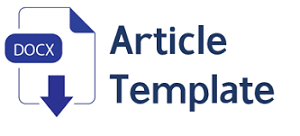CONTEMPORARY ISLAMIC EDUCATION CURRICULUM (Responding to the Needs of Multicultural Societies at Local and International Levels)
DOI:
https://doi.org/10.56691/jurnalmultidisiplinerbharasa.v3i01.349##article.subject##:
Islamic Education Curriculum, Multicultural Society, Contemporary Education, Value Integration, Holistic Approach.##article.abstract##
In the era of ever-growing globalization, the biggest challenge in Islamic education is to design a curriculum that is able to respond to the needs of multicultural societies both at the local and international levels. This article aims to examine and analyze how contemporary Islamic education curricula can be integrated and adapted to the needs and challenges of multicultural societies. Through qualitative approach and document analysis, this study identifies the basic principles that must be applied in the Islamic education curriculum to achieve these goals. The results showed that the integration of universal values, local wisdom, and a deep understanding of cultural diversity is the main key in curriculum development. Researchers also found that it is important to adopt innovative and inclusive learning methods to support the effectiveness of the curriculum. Thus, a contemporary Islamic education curriculum that is responsive to a multicultural society can be an important means in producing a generation that not only has academic excellence, but also high social sensitivity and adaptability in the midst of global diversity. This research contributes to new thinking in the development of Islamic education curricula that are relevant to the current socio-cultural context, as well as providing practical guidance for educators and curriculum developers in various Islamic educational institutions.






























